- Home
- Johnny D. Boggs
Hard Way Out of Hell Page 6
Hard Way Out of Hell Read online
Page 6
Soon we were wearing uniforms, and I do not mean the Yankee blue that we stole from the dead. I don’t remember who was the first among our boys to put on a battle shirt, or even what it looked like. Plaid or solid, wool, flannel, or cotton? But those shirts would identify us in battle—and damn us to a firing squad or hangman’s noose should we be captured wearing one. Our bushwhacker shirts had a lay-over collar with pockets and collar and a button front trimmed in a dark or bright ribbon. Some of us took to wearing overshirts, also trimmed, featuring pockets deep and wide enough to hold pouches of leaden balls, powder horns, and tins of percussion caps. Sometimes the women who made these shirts for us would embroider the front with flowers, crosses, vines, and other designs, or create a patchwork pattern by stitching together different fabrics just like a quilt.
Mine was hunter green, with a long V-front trimmed with beige and black print—I do not recall the exact design—that matched the cuffs of my sleeves. John Thrailkill wore one with garish embroidery. Because we teased him so mercilessly about it, he would sometimes take it off when we were just sitting around or eating. It was Lizzie Brown who made my bushwhacker shirt. She sent it to me with a daisy pinned to it right where my heart was located.
* * * * *
“Cole,” Quantrill said.
After dumping the dregs of my coffee near the stone ring of our fire pit, I tossed the empty tin cup to Frank James, and crossed our camp—in a ravine in the Sni-A-Bar—to the rocking chair where William Quantrill sat, sipping brandy from a snifter.
“Yes, sir?”
“I am promoting you to captain.”
I could only blink.
“You shan’t be in command of a specific troop,” Quantrill said, “not like your brother-in-law, Jarrette.” John had gotten his command a few weeks earlier. “You will be more like a captain at-large. You’ll be given specific duties that require a man with your grit and spunk and, most importantly, your brains.”
“Thank you, sir.”
He held up the snifter toward William Gregg, who quickly refilled it with dark brown liquor. “Do not thank me yet, Cole Younger,” Quantrill said. “Your first mission will likely result in our untimely deaths.”
* * * * *
The city of Hannibal lay roughly one hundred miles northwest of St. Louis on the Mississippi River, meaning that the Yankees held it firmly. Steamboats were docked on its banks, belching plumes of black smoke, and an engine of the Hannibal and St. Joseph Railroad chugged away from the depot, hauling cars filled with Yankee soldiers and crates of supplies bound for points to the west.
When Quantrill first told me we would be riding to Hannibal, I thought he meant we would be destroying the railroad. Some Rebels had brought down the Salt River bridge, but the Yanks had rebuilt it. An Illinois bluebelly named Grant—yes, that very same Ulysses S. Grant, but before anyone knew of him—had been put in charge of protecting the rails, but at the time I didn’t know if he had remained in Hannibal or not.
Bold as brass, dressed in Yankee blue, I rode on a high-stepping gray Arabian stallion down the center of the street. Behind me, George Todd flicked the lines of an empty farm wagon, and, behind him, William Clarke Quantrill drove another buckboard.
A Yankee soldier stepped out of a two-story frame house. Seeing the bars strapped on the shoulder of his navy coat and the golden leaf design, I reined up and saluted. “Major,” I said in acknowledgment as I reached inside my blouse, my fingers touching the pocket Colt I had slipped inside for extra security, but I pulled out only some papers. “Requisition, sir.”
The fat officer took the papers, patting his various pockets until he found his spectacles. As he read the order Quantrill had written, he looked up at me.
“What outfit are you with?”
I told him a lie.
“You boys have been consistently whupped by that Secessionist border trash, haven’t you?” He grinned.
“They fight like hell,” I told him, which was no lie.
“Bushwhackers. Ought to hang the whole lot.”
I nodded. “If we catch them, we will.”
“I could catch them”—sighing heavily, he handed the papers back to me—“if the Army would just give me the chance. Playing nursemaid to a damned railroad … well, this isn’t why I joined.”
“No, sir.” I returned the papers to the inside of my shirt next to the small revolver.
“Supply depot is at the river’s edge, just past town, Lieutenant,” the major told me.
“Thank you, sir.” I indicated by gesture to Todd and Quantrill, and they followed me down the street. The weather had started turning warm so the town was packed. Turning toward Quantrill, I had to grin as we watched bluecoats, who had shed their tunics and rolled up their sleeves, load our wagons with kegs of powder, plenty of lead bars to mold bullets, and perhaps fifty thousand percussion caps. I spied a couple of crates labeled Springfield, so I nudged my horse over toward the sergeant overseeing the loading of our wagons.
“What’s the chance of us getting a box of them rifles?” I asked.
The sergeant spit tobacco juice in the mud. “Your requisition don’t say nothin’ ’bout no long guns does it, bub?”
“Don’t say nothin’ ’bout no brandy, neither,” I told him, “but you go to that smaller wagon there, and you tell the driver I was thinking we might be willing to hand over a bottle … well, for an equally beneficial trade.”
That caused the Yank to study Quantrill, who kept his eyes trained on two lovely ladies twirling parasols and squawking like hens as they walked down the boardwalk.
“Brandy, would it be?”
“Came all the way from Gascony,” I told him.
“Where’s that?”
I shrugged. “Sure ain’t Saint Louis.”
“Sullivan!” the sergeant barked. “You and Muldoon put that top box of Springfields in that second wagon. And … maybe that there box of Colt’s fast-shootin’ revolvers, too, should they be willing to throw in a second bottle.” He looked back at me.
“Sergeant,” I said, “we only have one bottle of brandy.” I had not even noticed the box of revolvers.
“Your choice then. But make it snappy. Revolvers or rifles?”
I answered without hesitating: “Revolvers.” The sergeant quickly ordered his men to forget about the rifles, and instead load the box of revolvers. “Infantry that we are,” I lied when the bluecoat looked at me again, “we don’t see much in the way of ’em revolving pistols.”
Hell, that’s all we used.
* * * * *
We killed. We foraged. We did what it took to survive, hitting by surprise, wearing the federal uniforms on those occasions when we needed to lull the stupid bluecoats into that false sense of security, like they would live forever. I never popped a cap on an unarmed man—unless he deserved it.
But I think about what I did do, and what Quantrill and others—Todd, Gregg, Bill Anderson—did for boys like me. They gave us a purpose, a cause. They gave us a reason to kill. The put revolvers in our belts, and hate in our hearts. We forgot the teachings of Jesus, the Ten Commandments. We lived to butcher the men who wore the blue. And it was easy, too damned easy. You want to command an army with unquestioning loyalty? Find boys and put guns in their hands.
* * * * *
“You read Shakespeare?” Frank asked a Yankee officer we had captured along the Big Blue. While rooting through the man’s grip, he had found a fancy book with a cover of Morocco leather, which he tossed up to me. The Pictorial Edition of the Works of Shakespeare: Histories Vol. I: (King Henry VI, Part I; King Henry VI, Part II; King Henry III; King Richard III; King Henry VIII). I stuck the volume in my saddlebag.
“Listen,” the bluebelly said, his voice cracking while Little Archie Clement and Bill Anderson trotted around the road, putting bullets in the brains of the wounded, or slitting throats.
“I don’t know anything about what’s going on here. I’m from Iowa. The army just sent me here. I’m not even a real soldier.”
Frank was checking the loads in his revolver. “What did you do before they made you a lieutenant?”
“Nothing. I mean … I was a … lawyer.”
I laughed, and Frank grinned at me. “Nothing. A lawyer. Makes sense to me, doesn’t it?”
The Iowa lieutenant gave me a feeble smile.
“My favorite work of Shakespeare is Macbeth,” Frank said as he turned toward the lieutenant.
“The Scottish Play.” The Iowa attorney’s pale head bobbed up and down.
“Though I must admit I have a fondness for One Henry Four. Yet,” continued Frank, cocking the Remington, “there is a line in the tome you carried that has always utterly fascinated me. Henry the Sixth, Part Two. It’s … ‘The first thing we do, let’s kill all the lawyers.’ ” He shot the Iowa attorney between the eyes.
“That’s not what the Bard meant,” I said as I handed Frank the reins to his horse. Holstering his .44, Frank James gave me that cold stare. I continued: “When Dick the Butcher says that line, he means only the attorneys who lacked all ethics. Shakespeare, to my way of thinking, was paying tribute to all attorneys and judges who strive for justice.”
Frank climbed into the saddle. “Maybe … Bishop Cole … that there bluecoat was one of those pettifogging sons-of-bitches before he put on that uniform.” He gestured at the dead lieutenant. “No ethics. No morals. Maybe he followed the ideas of that rebel, Jack Cade, who revolted against the British back in the fifteenth century.”
“You’ve changed, Buck,” I told him.
“Like hell I have. Yanks took my stepfather. They strung him up by the neck with a rope, leaving him dancing in the air while my mother, on her knees, screamed and begged for mercy. Oh, those bastards let him down, all right. Asked him again to tell them where I was hiding, where Quantrill was camped … Then they jerked him up again to dangle and choke some more. Ma was making soap when they rode up. They pulled over the black cauldron and told her … ‘You Jameses are dirt. You don’t need any soap.’ And they beat my kid brother, split his head open with one of their sabers while he was working the fields, and cut his back with a blacksnake. Jesse’s not fifteen years old, and he knew less than my stepdad knew. They left my stepdad hanging from that rafter in the barn, and if Ma hadn’t somehow managed to loosen the knot, well old Doc Samuel would be walking the streets of glory. Instead, my stepdad’s in bed with his throat swollen up whilst Jesse can’t even sleep on his back. And had this here little set-to turned out different … had it been that Iowa attorney who held court and we were his prisoners …” He paused to bite off a mouthful of tobacco. “They would have done us the same as we did them. I haven’t changed, Bud. It’s this damned world that’s changed.”
I didn’t believe my good friend, not then. But I soon realized that Frank James was right. Two weeks later, in the heat of a July afternoon, I rode into our camp along Lumpkins Fork, only to learn what living out your worst nightmare means.
Frank took the reins to my horse, and jerked his head toward Quantrill, who stood underneath a tree, frowning.
Dully, I walked to our commanding officer and stopped in front of him. Quantrill cleared his throat, but, for once, words failed him, so he shot a timid glance at John Jarrette.
With a heavy sigh, John handed me a letter.
“It’s,” he said softly, “your father.”
Chapter Ten
What kind of anarchy reined in western Missouri in July of 1862? Try to fathom this: After they murdered Pa, they left him on the side of the road that led from Westport. People passed by, saw his body, but they didn’t stop, because, in those days in Missouri, people knew to mind their own business. If they made the wrong decision, tried to help the wrong people, they could very well end up dead.
You see, Parson, various business matters had often taken Pa to Kansas City, Westport, and Independence. On this trip home, he had kept $500 —I learned this later—in his pockets, but he had hidden $1,500 in a money belt under his shirt.
On July 20th, when Yanks met him a few miles southeast of Westport, they shot him off the buckboard he was driving, took his watch and the $500 they found in his pockets, and rolled him over, no doubt admiring the three bullet holes they had put in his chest. Laughing, they rode off, leaving his body to the ants, to swell up in the muggy heat like some stray dog or coyote that had been run over by a buckboard.
Finally, Mrs. Washington Wells, a God-fearing woman, who was traveling home to Strother with her son Samuel, stopped. They wrapped Pa’s body in a blanket, loaded it on the back of their Studebaker, and took him to our home in Harrisonville.
“Your father’s funeral is today, Cole, but you cannot attend,” Quantrill stated after I had finished reading the letter.
Shock still rattled me. It took several seconds before I realized he had said something to me.
“Yankees will surround the cemetery,” Quantrill continued. “They will follow the funeral procession like the vultures they are. Expecting you to be there … so they can bury you next to your father.”
My hands balled into fists, even though I knew Quantrill spoke with sagacity.
“You don’t want to go, Bud,” John Jarrette said.
I turned toward John, whose face showed no emotion as he told me: “You’ll want to kill the swine that murdered Mr. Henry.”
“Go on,” I managed to whisper.
“They bragged about it in an Independence grog shop,” Jarrette said. “The man who ramrodded the murder couldn’t hold his liquor. A bluebelly general had the leader arrested. What Billy heard”—Jarrette nodded toward Bill Anderson—“is that the captain confessed as soon as they had him in the camp. Ain’t that right, Bill?”
Anderson’s head bobbed, but his eyes looked right through me. It was young John Thrailkill who had best described Anderson’s eyes when he called them “unfathomable.” In time, history would remember him as Bloody Bill when his actions during the rest of the war were equally unfathomable.
You see, Bill had grown up in Kansas, where he learned to steal horses. Most likely he would have been hanged as a mere thief had Yankees not killed his father. The killing drove Bill to Quantrill. His dark, long hair and beard were unkempt, his eyebrows prominently stretched almost across his forehead. He donned a black slouch hat, the front brim pinned up with a five-point brass star. A wiry man maybe five-foot-ten, he wore a suit of black velvet, carried four revolvers at his waist, and always rode black horses, most of which he had stolen. He even carried a silk cord in his jacket pocket, and tied a knot in the strand every time he killed a Union man. Yet what everyone remembered of Bloody Bill Anderson were those eyes, blue, gray, cold, that rarely blinked.
“They’re takin’ the murderers to Harrisonville,” Anderson said softly, damned near pleasantly, in an accent more Mississippi than Kentucky, where he had been born. “To stand trial.”
“When?”
“Day after tomorrow,” Anderson said, “is what this dyin’ bluebelly told me on the road to Olathe. And he wouldn’t lie to me … not whilst I was pullin’ his guts out from the hole I carved across his belly.”
Still numb from the news, I turned back to John, glad to escape those eyes of Anderson.
“The bluecoat who confessed …” Jarrette was saying. “The man who led the Yanks and killed Mr. Henry. It was the captain from that dance last year. Walley. Irvin Walley.”
* * * * *
In the woods along the Harrisonville pike, we waited. Twelve of us hidden in the thickets just east of East Creek. Another sixteen waited on the west side of the road. Wearing the uniforms of Yankee soldiers, Frank James, Clell Miller, and I busied ourselves replacing the left rear wheel on an army ambulance, while our “major,” George Shepherd, watched and smoked his cigar.
&
nbsp; As the bluecoats slowed down their approach, Shepherd removed the cigar from his mouth and waved his gauntleted hand. The army boys stopped their horses. I counted fourteen in all, but I focused on the five men whose hands were shackled in iron. I could not make out any of the faces, since their kepis were pulled down low and their heads were drooping as if in shame.
Besides, I was keeping my own head down, obeying Quantrill’s orders. He had not wanted me to be with the wagon in the road, because he feared the prisoners—especially Walley—would recognize me, sound the alarm, and spoil our ambuscade. However, quoting from Romans, I had told Quantrill as we made our plan: “ ‘Vengeance is mine.’ ”
“Afternoon, Lieutenant!” Shepherd called out. “Where you bound?”
“Harrisonville,” the officer said. “I see you’ve had trouble?”
Shepherd shook his head. “No, Lieutenant. You’ve found trouble.”
At that moment Frank shot the Yankee officer off his horse, and revolvers began booming from both sides of the road. Horses fell. Men fell. In less than one minute, it was over, except for a shot to the head of any bluebelly found to be only wounded. Filled with blood lust, I stormed over to the dead men and dead horses at the center of the patrol, where I kicked over the first body of one of the shackled men who was lying face down. Sightless eyes stared up at me.
Quickly, I glanced at another, and knew instantly that he had not been our target. Nor was the third man, who Thrailkill had just dispatched with a bullet in the temple. Not the fourth. When I jerked up the last of the prisoners by his blue blouse, I spit in his face, threw him back down against a dead horse, and palmed my Colt. The man was already dead, but I still emptied my revolver into his chest.
“He’s not here!” I yelled, and slammed the empty .36 onto the blood-drenched earth. “Walley isn’t here!” My head tilted back skyward, and I screamed an unholy, primeval shout, cursing God, Captain Irvin Walley, and myself.
Frank James and John Jarrette hurried over and steered me away from the carnage. I sobbed as they boosted me into the saddle, and then we fled the massacre site.

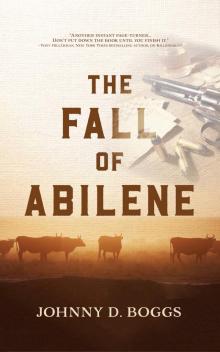 The Fall of Abilene
The Fall of Abilene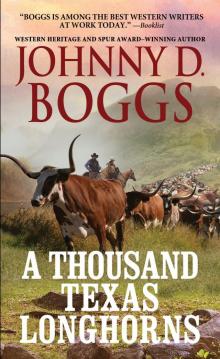 A Thousand Texas Longhorns
A Thousand Texas Longhorns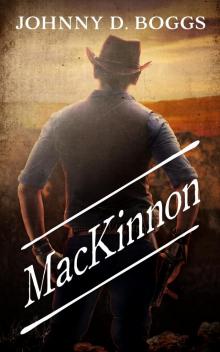 MacKinnon
MacKinnon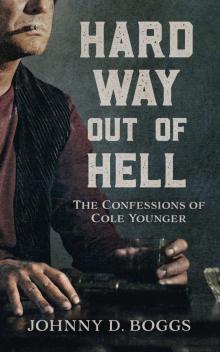 Hard Way Out of Hell
Hard Way Out of Hell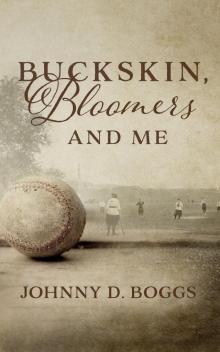 Buckskin, Bloomers, and Me
Buckskin, Bloomers, and Me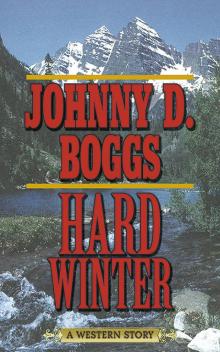 Hard Winter
Hard Winter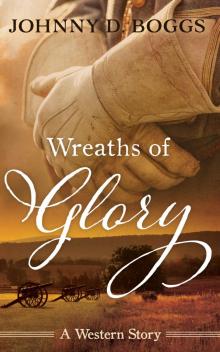 Wreaths of Glory
Wreaths of Glory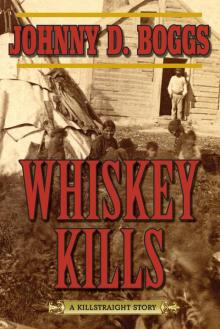 Whiskey Kills
Whiskey Kills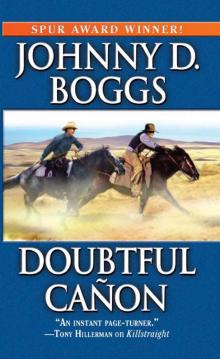 Doubtful Canon
Doubtful Canon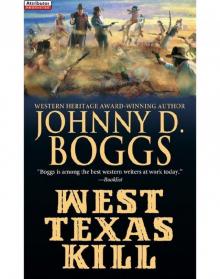 West Texas Kill
West Texas Kill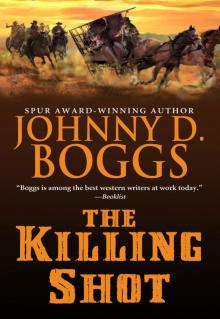 The Killing Shot
The Killing Shot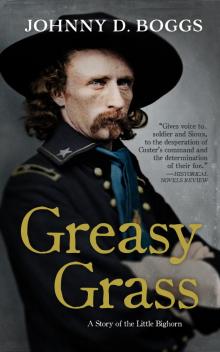 Greasy Grass
Greasy Grass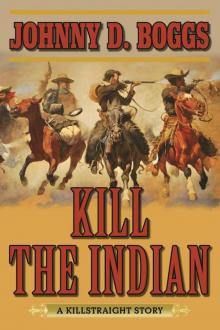 Kill the Indian
Kill the Indian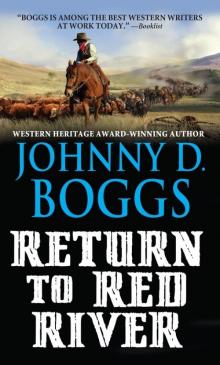 Return to Red River
Return to Red River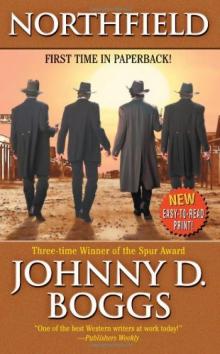 Northfield
Northfield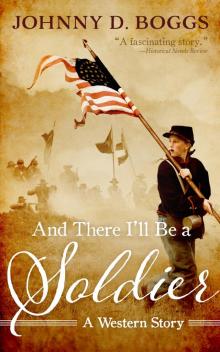 And There I’ll Be a Soldier
And There I’ll Be a Soldier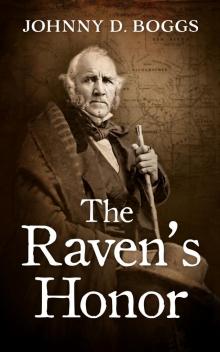 The Raven's Honor
The Raven's Honor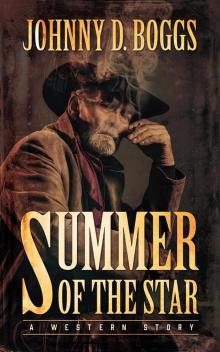 Summer of the Star
Summer of the Star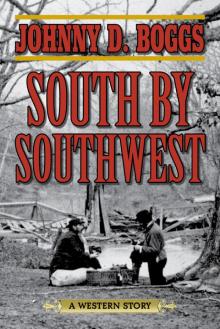 South by Southwest
South by Southwest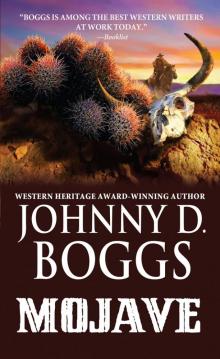 Mojave
Mojave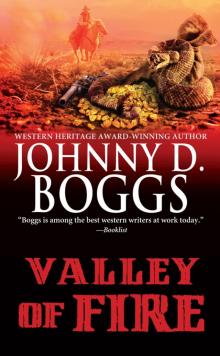 Valley of Fire
Valley of Fire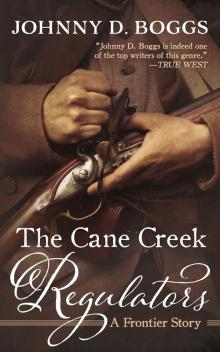 The Cane Creek Regulators
The Cane Creek Regulators